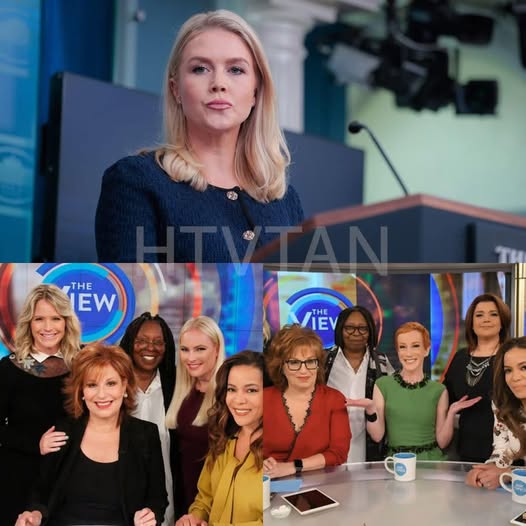
$800 Million Showdown: ‘The View’ Hit With Defamation Lawsuit Over On-Air Remarks
A legal firestorm is erupting in the world of daytime television. Former White House staffer Karoline Leavitt has filed an $800 million defamation lawsuit against the hosts of The View, sparking intense media buzz and public debate. The high-stakes case is being watched closely for its potential to redefine the boundaries between opinion, commentary, and defamation on national television.
What Triggered the Lawsuit?
The controversy stems from a recent episode in which The View’s hosts made pointed remarks about Leavitt. According to her legal team, those comments went far beyond heated debate — crossing into the realm of personal attack and character assassination.
Now a rising conservative media strategist, Leavitt isn’t backing down. In a fiery statement, she declared: “They had their chance. Now it’s too late.” Her message is clear: this isn’t a publicity stunt — it’s a demand for accountability.
Can She Win?
Defamation cases involving public figures face a high legal bar. Leavitt must prove not just that the statements were false, but that they were made with actual malice or reckless disregard for the truth.
Yet her legal team is confident. One insider called the case “serious and substantial — not just symbolic.” And with the jaw-dropping price tag of $800 million, it’s clear they’re betting big.
So far, The View has not commented publicly, but sources say internal discussions are underway as both legal and PR teams scramble to contain the fallout.
Public Opinion Is Split
As expected, the lawsuit has ignited passionate reactions across the spectrum. Supporters hail it as a bold stand against reckless media behavior, while critics warn that it could muzzle free speech and chill open debate — especially on opinion-driven shows like The View.
A New Era of Accountability?
Media analysts say this case could become a landmark — signaling a shift in how far talk shows and pundits can go when discussing controversial figures. In an era where headlines move faster than fact-checkers, this lawsuit might be a wake-up call for televised opinion platforms.
What’s Next?
Whether the court rules in Leavitt’s favor or not, the damage is already done — and the conversation is only just beginning. As legal teams gear up and viewers tune in, one thing is certain:
This isn’t just a legal battle. It’s a cultural moment — and it may change how America talks on TV.